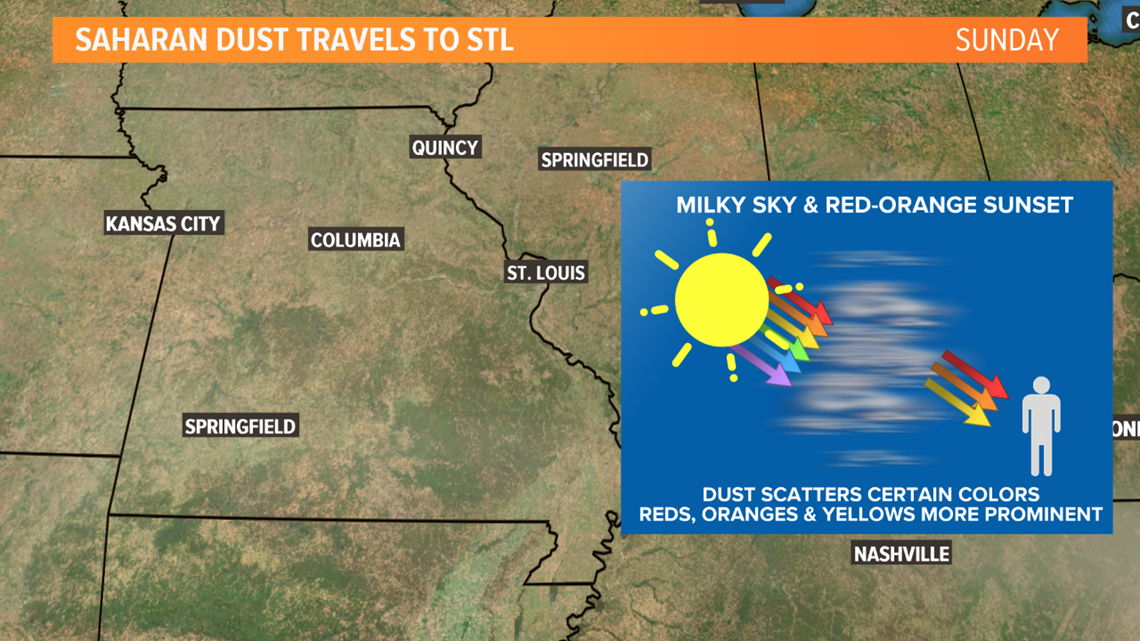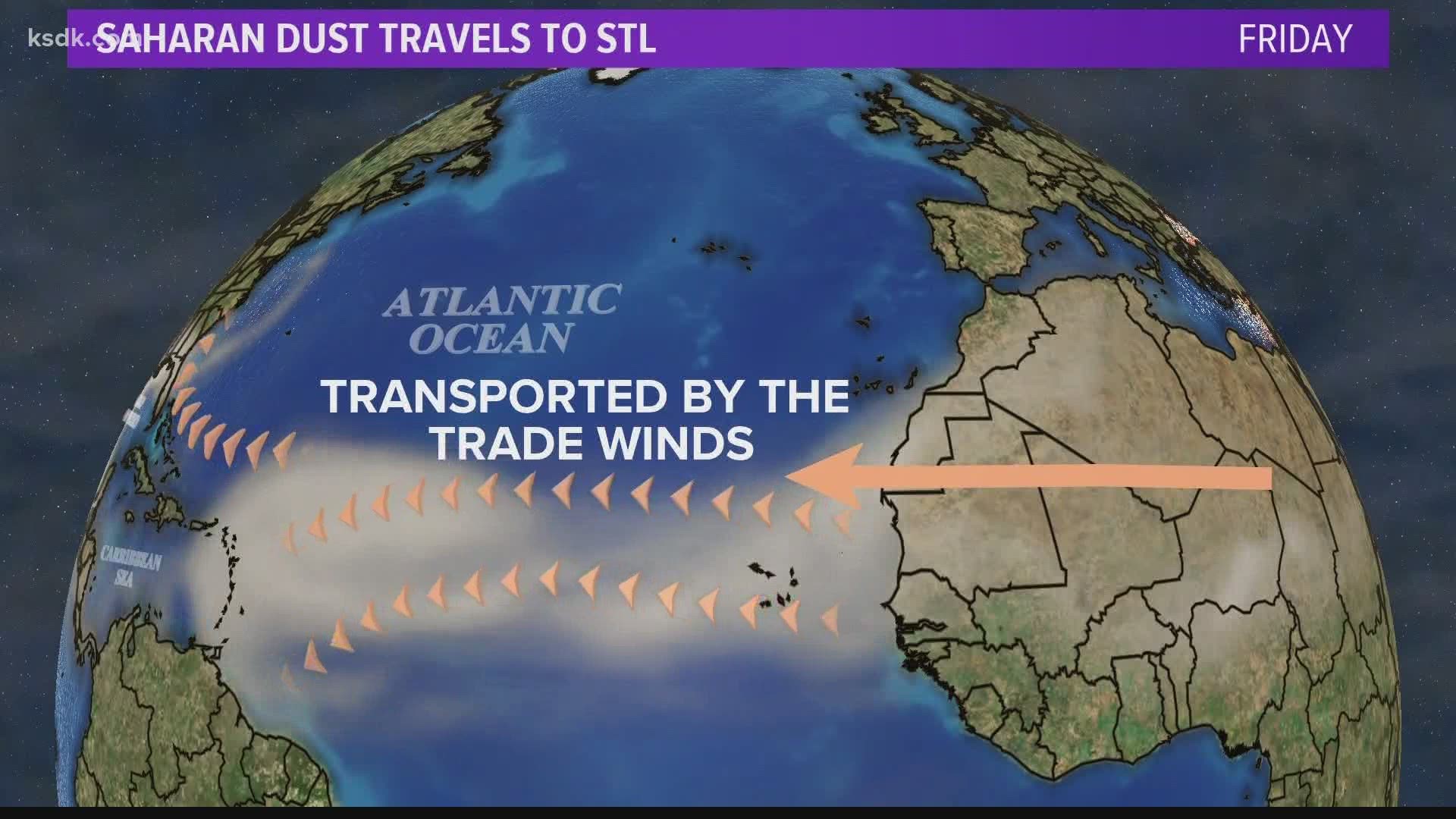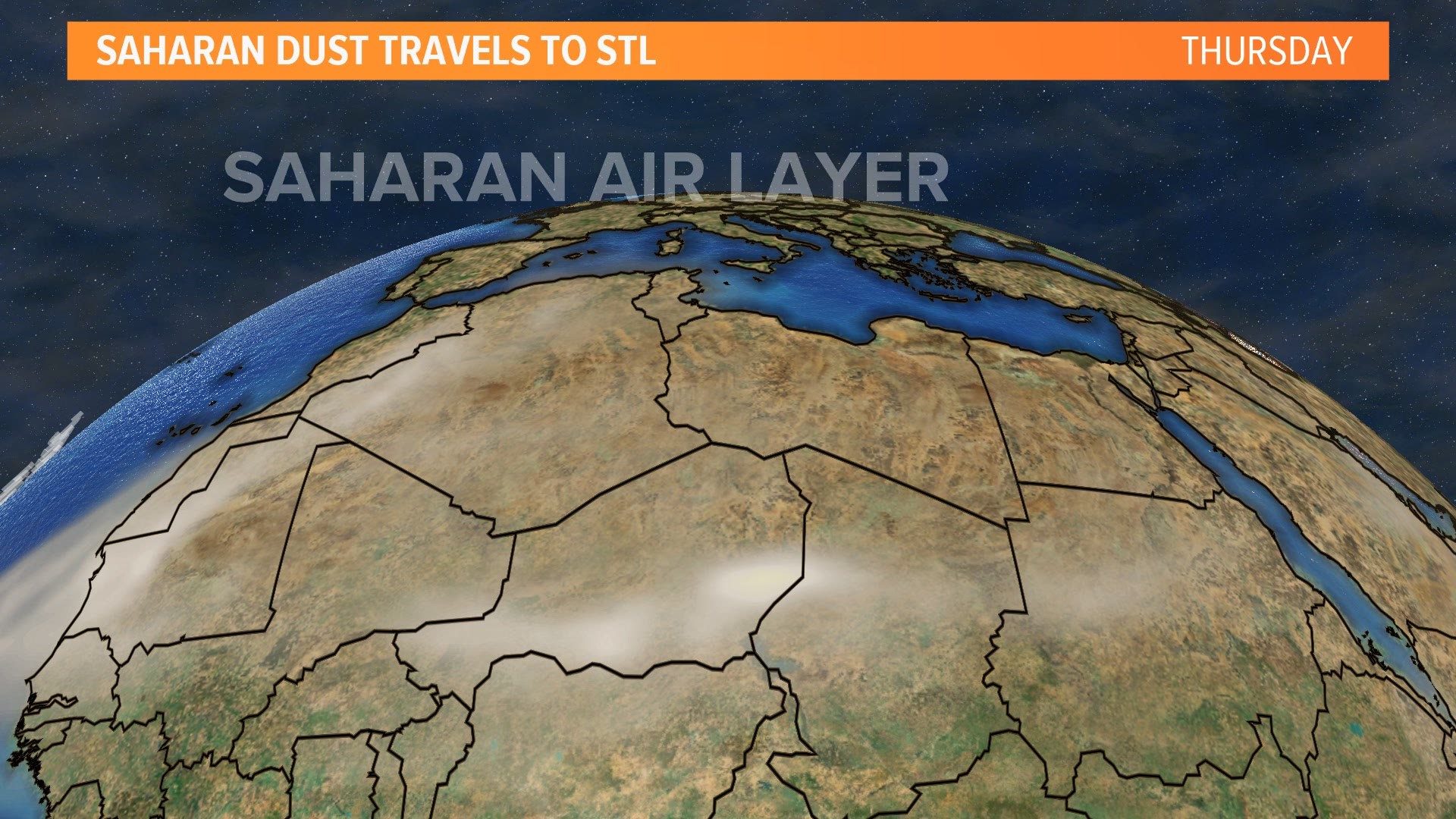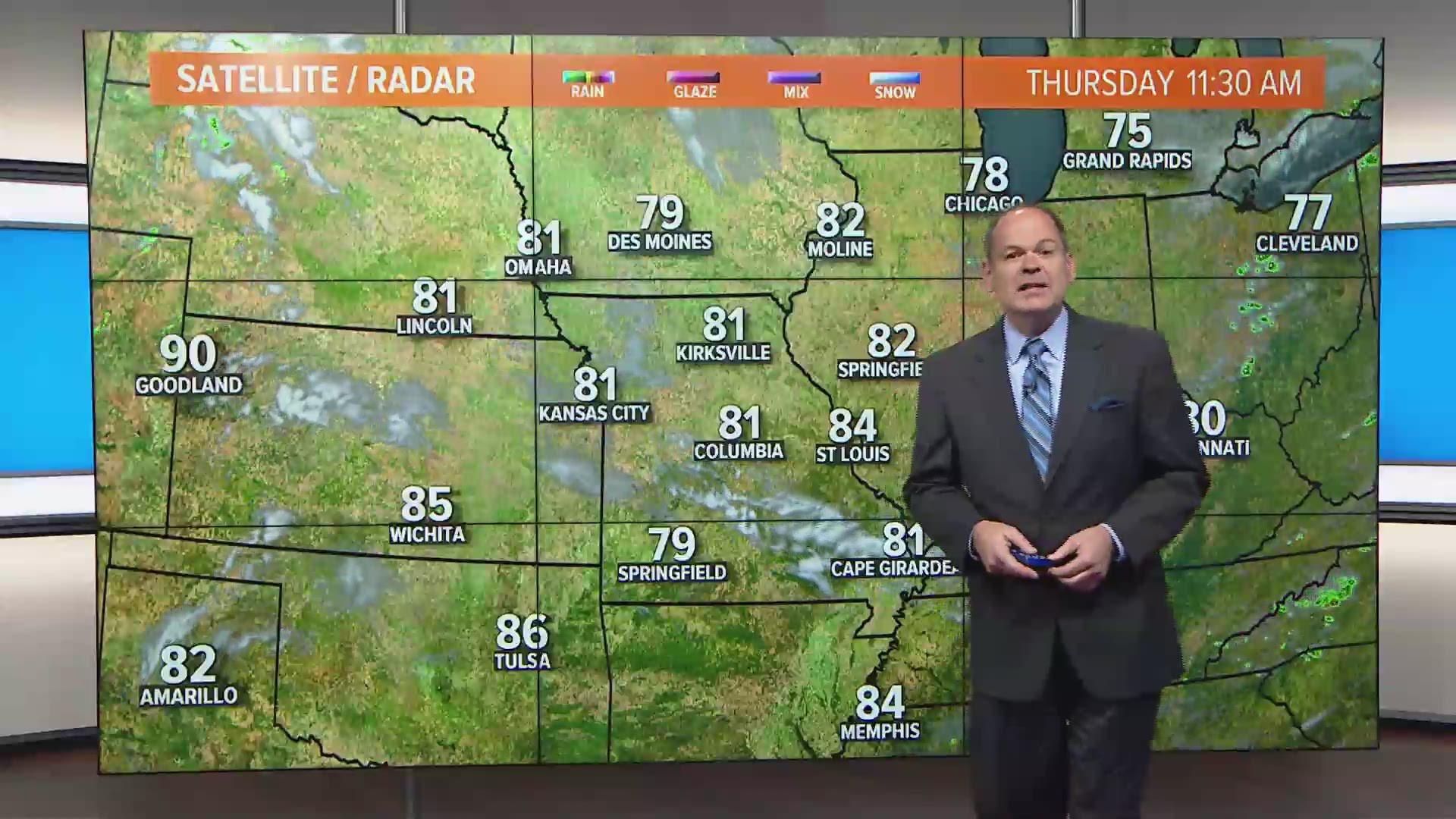ST. LOUIS — A massive cloud of dust from Africa has traveled across the Atlantic Ocean and is starting to impact parts of North America.
The dust made it to the Caribbean earlier this week, giving the sky a milky glow. While the scene here in St. Louis will not be as intense, the same phenomenon will happen over the weekend.
The Sahara Desert spans across northern Africa. A mass of dusty air forms over this region every three to five days from late spring to early fall. It extends between 5,000 and 20,000 feet into the atmosphere.
Trade winds carry the dust across the Atlantic Ocean and push it into parts of North and South America.
By Saturday, this Saharan Dust will push into the Gulf Coast states and eventually travel over the Bi-state area.
Sunsets will take on a different hue when the dusty mass is over us. They'll be more red and orange because dust particulates will scatter light differently than on a typical day.


Despite the unique sunsets, the dust in our forecast also comes with a health warning.
Doctor H. James Wedner is the Chief of Allergy and Immunology at Washington University and Barnes-Jewish Hospital.
"There's dust and there's dust. Dust comes in all shapes and flavors and kinds," he said.
And the Saharan dust coming for the St. Louis area is very fine, invisible close up.
"It's very tiny particles and they're small enough to get into the lungs, and yes they can affect your breathing," Dr. Wedner explained.
People with asthma and lung disease may notice difficulty breathing. Others may have itchy eyes or a runny nose.
"We shouldn't be caught off guard, especially with the pandemic and everything else that's going on. We don't need other problems, our patients don't need more problems," warned Dr. Alpana Chandra with Mercy Clinic Pulmonology.
While most cloth masks won't filter out fine dust particulates, those masks will be more important while this Saharan mass is over us.
"Being exposed to this kind of a deterioration in air quality may enhance your chances of or enhance your susceptibility to a viral infection," explained Dr. Chandra, "I think it is very important to be a little bit more cautious about keeping that mask on."
Both doctors recommended limiting time outside when air quality diminishes. Dr. Wedner also suggested keeping your A/C unit's fan on throughout the day. He said it uses as much electricity as a light bulb and can filter out dust particles in your home.



